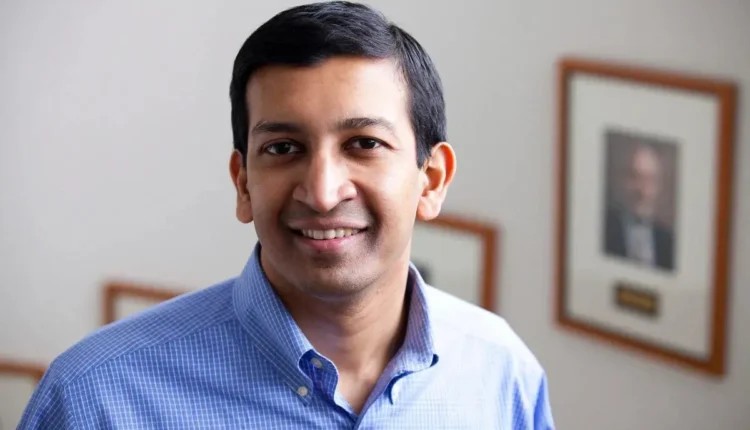In the intricate tapestry of the global economic landscape, certain individuals stand out as beacons of change, their work resonating far beyond academia. Raj Chetty, the William A. Ackman Professor of Public Economics at Harvard University, is undeniably one such luminary.
Born on August 4, 1979, in New Delhi, India, Chetty’s story is not just a chronicle of academic achievements but a testament to the transformative power of research in shaping societal structures.
Education and Early Career of Raj Chetty
Raj Chetty’s odyssey began in New Delhi, where he spent his formative years until the age of nine. In 1988, his family embarked on a journey that would eventually lead him to become a stalwart in the field of economics. Chetty graduated from the University School of Milwaukee in 1997, setting the stage for an illustrious academic journey.
His pursuit of knowledge took him to the hallowed halls of Harvard University, where he earned his AB in 2000. Unwavering in his commitment, Chetty continued his academic sojourn at Harvard, culminating in a Ph.D. in 2003.
His dissertation, guided by luminaries like Martin Feldstein, Gary Chamberlain, and Lawrence F. Katz, delved into the intricacies of consumption commitments, risk preferences, and optimal unemployment insurance.
Chetty’s ascent in academia was nothing short of meteoric. At the tender age of 24, he assumed the role of an assistant professor of economics at the University of California, Berkeley. By 28, he achieved tenure, etching his name in the annals of history as one of the youngest tenured faculty members at Harvard’s economics department.
The journey continued as he became the Bloomberg Professor of Economics at Harvard in 2009, followed by a stint at Stanford in 2015. In a move that echoed his commitment to addressing societal challenges, Chetty, in 2018, co-founded Opportunity Insights, dedicated to using research to impact social policies positively.
Research and Impact
Raj Chetty’s body of work is a testament to his dedication to unraveling the complexities of economic mobility and opportunity. One of his seminal contributions came in 2011, where, alongside John Friedman and Jonah Rockoff, he demonstrated the profound impact of high-value-added teachers on students’ long-term outcomes.
The landmark case of Vergara v. California saw Chetty’s testimony affirming the direct link between teacher quality and students’ achievements. His findings underscored the need for equitable policies in education, particularly concerning minority and low-income students.
A pivotal moment in Chetty’s research trajectory was marked by his 2014 paper, “Where is the Land of Opportunity? The Geography of Intergenerational Mobility in the United States.”
Using de-identified federal income tax records, Chetty unearthed the impact of geography on economic mobility. His conclusion emphasized the need for localized, place-based policies to address the unique challenges faced by each community.
Recognition and Awards
Raj Chetty’s contributions have not gone unnoticed. In 2008, The Economist and The New York Times hailed him as one of the top eight young economists globally. The John D. and Catherine T. MacArthur Foundation recognized his genius in 2012, awarding him the prestigious Genius Grant.
In 2013, the John Bates Clark Medal acknowledged his significant contributions to economic thought. Chetty’s influence continued to expand, earning him the Padma Shri in 2015 and a place as a member of the National Academy of Sciences in 2018.
George Mason University economist Tyler Cowen aptly described Raj Chetty as “the single most influential economist in the world today.” The impact of his research has reverberated through respected publications such as The New York Times, The Atlantic, Our World in Data, and Vox.
In 2019, Raj Chetty received an Andrew Carnegie Fellowship and, in December 2020, the Infosys Prize for Social Sciences – Economics, recognizing his pioneering research in identifying barriers to economic opportunity.

